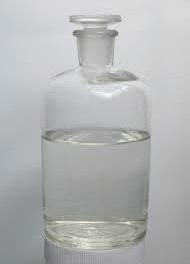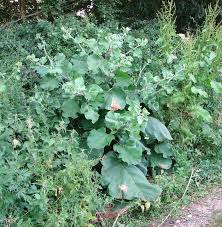G. E. DIENST, M. D., Aurora, Illinois
Samuel Hahnemann was a man of rare courage and ability. His powers of perception, his keen analytical mind, enabled him to see what others failed to see. His was a constructive mind, and, though he built slowly, he built accurately. He was scrupulously careful in laying his foundation, but when laid he erected a superstructure, which has stood the storms of generations.
He was exceptionally well educated in the science of medicine as practiced in his day, and beholding its inefficiency, he began a course of analytical study in order to discover the reasons for this inefficiency. Great men preceded him in the supposed art of healing the sick, great men were contemporary with him, but none had the mental ability to perceive the errors of the practice of his day, and none knew how to correct this error, neither had anyone the courage to expose this error. He was keenly alive to the situation, for he knew it was one thing to criticize, but quite another matter to replace the errors with truths that were indestructible and immovable, for nothing less would satisfy his inquiring mind, or meet the approval of his thinking colleagues. After years of the most careful study and experiments, he ultimately conceived the idea of putting his discoveries into concrete form and therefore, wrote the Organon on the science and art of healing the sick. Before doing this he also gave thought to the kind of men, in soul and body, who might espouse his cause and practise his system. He saw, clearly, how his colleagues had commercialized, what was to him, a sacred vocation, and universally adopted routine of practice which was followed without thought as to results. Practically all mistakes, and an unwarranted mortality were condoned on the plea of following the usually and universally prescribed methods. He saw many of his associates in various enterprises, making the healing of the sick a secondary proposition. To him life and health was too sacred to be dealt with in any manner but the most thorough and painstaking care, nor could he think of any one pretending to heal the sick having any other vocation or calling or duty but this one supreme thing. Therefore, when he set about to write the Organon, the first thing that came to his mind was – the physician and his vocation. His first section describes his idea of the true physician for he says: “The physician’s high and only mission is to restore the sick to health, to cure as it is termed.”
In a foot-note, we read of his reasons for this particular section, for he says: “His mission is not, however, to construct so called systems, by interweaving empty speculations and hypotheses concerning the internal essential nature of the vital processes and the mode in which diseases originate in the invisible in terior of the organism, (whereon so many physicians have hitherto ambitiously wasted their talents and their time): nor is it to attempt to give countless explanations regarding the phenomena in diseases and their proximate cause – (which must ever remain concealed), wrapped in unintelligible words and an inflated abstract mode of expression, which should sound very learned, in order to astonish the ignorant – whilst sick humanity sighs in vain for aid. Of such learned reveries, (to which the name of theoretic medicine is given and for which special professorships are instituted) we have had quite enough – [Even more than enough today. – G.E.D.] and it is now high time that all who call themselves physicians should at length cease to deceive suffering mankind with mere talk, and begin now, instead, for once to act, that is really to help and cure.”
How pertinently appropriate is this foot-note to conditions as we find them in some of our medical institutions of today! In a brief note to one of the professors of one of our modern medical colleges. I accused the faculty of a willful neglect in teaching the truth, to which he replied, that “we give so much time to nonessentials that we have no time for essentials.” This being true – who will deny it? – the much lauded progress in medical lore is but an empty boast.
What business has any man or woman pretending to the profession of healing the sick with any other aim or calling up that of healing! Apart from outside interests, looking at the science of healing from a Hahnemannian standpoint, the overwhelming majority of medical practitioners of today are but kindergartners in the art of healing the sick.
In all my research into medical history I have not found a single system which begins with a saner, more altruistic bit of philosophy than this first section of the Organon. It should be placed, in blazing script before every one beginning the study of medicine, and in similar script over the desk of every physician.
Having pointed out the aim and mission of every physician he follows in the second section with his definition of a cure, viz: – “The highest ideal of a cure is rapid, gentle, and permanent restoration of the health, or removal and annihilation of the disease in its whole extent, in the shortest, most reliable and most harmless way, on easily comprehensible principles.” This is the most comprehensive definition of a cure in the English language. Notice Please – “the highest ideal” it must be “permanent.” Can you imagine a higher ideal? How different this, from the zigzagging methods so common in every day practice; how different from the painful procedures, which are often described as worse than the disease; how different this from the palliative measures so common in our work of today, giving the patient the impression that he is better today, but on the morrow he falls back into the same routine of pain.
In all our research in the history of medicine, and medical literature, we find no statement, which in its clearness, its positiveness and unquestionable assurance is comparable to this. Who has a better definition of a cure than this? We feel confident, that we do not jeopardize our idea of a cure when we challenge the world for a better ideal, in restoring the sick to health.




